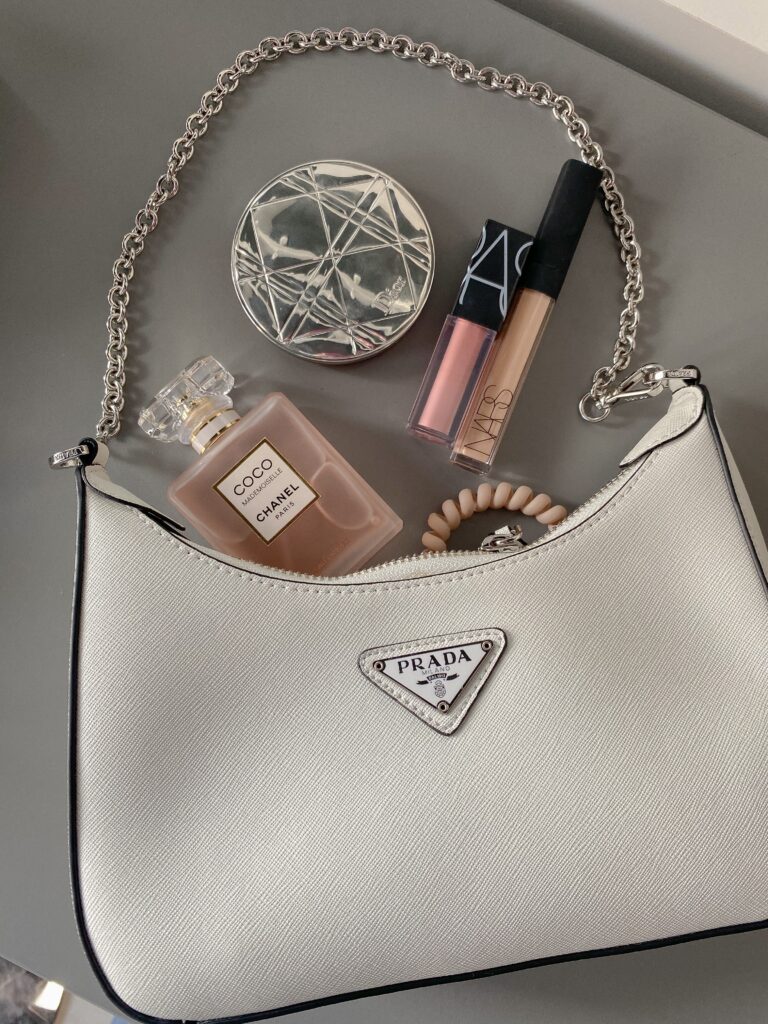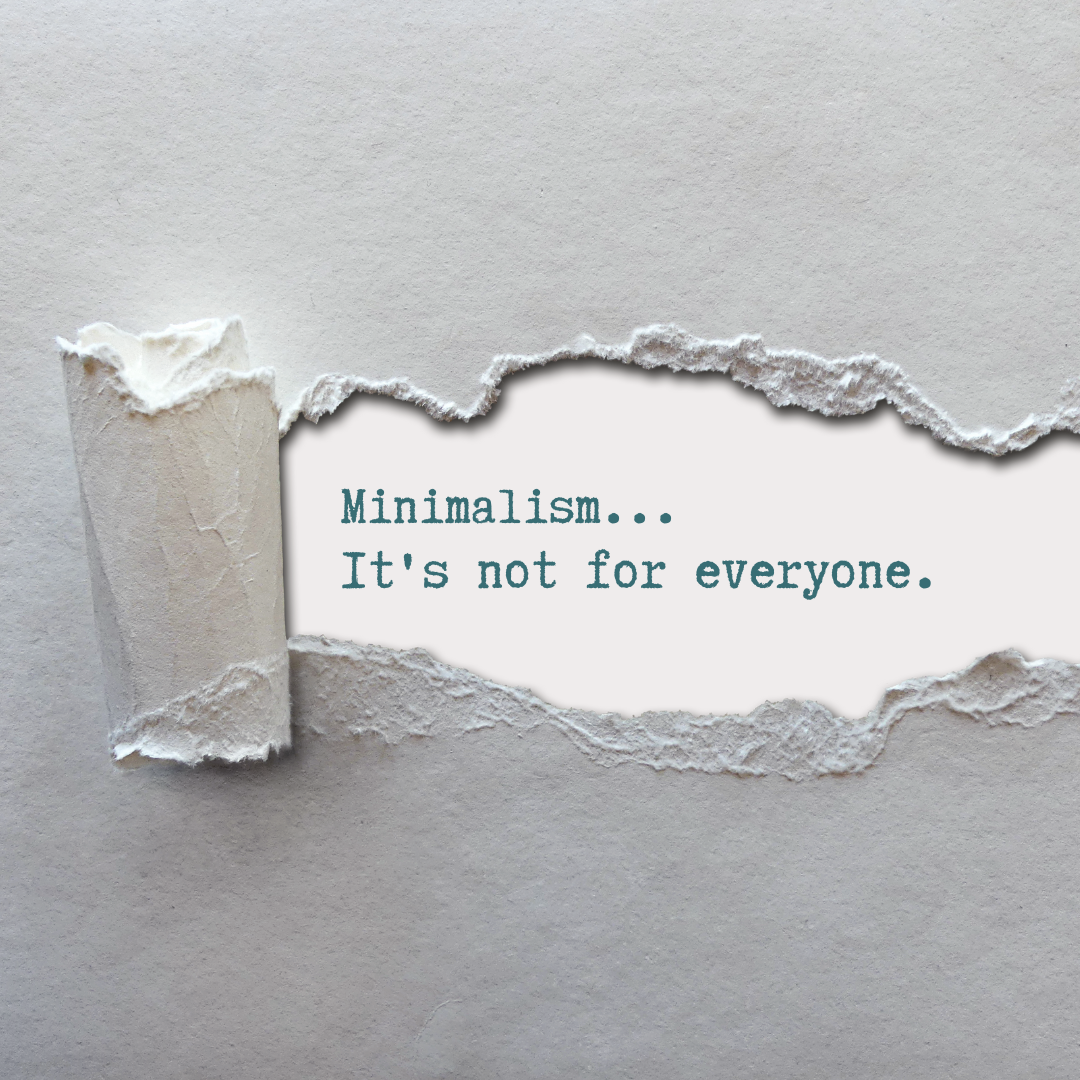The other day, I woke wondering, why isn’t everyone a minimalist? It’s such a simple way to live…no stress, no hassle, just enjoy knowing that less is more and surround yourself only with the things you love and need.
Minimalism, as a lifestyle choice, allows for simplifying one’s life by reducing material possessions and focusing on what truly brings value and joy to your life. So today, let’s explore some of the reasons why minimalism might not be appealing to everyone.
The Allure of Material Possessions
“You can never get enough of what you don’t need to make you happy.” — Eric Hoffer
The Seductive Nature of Consumerism

Consumerism is deeply ingrained in our society. From a young age, we are bombarded with advertisements telling us that purchasing the latest products will make us happier, more successful, and fulfilled. The allure of material possessions is strong, as they are often associated with status and personal identity. For many people, accumulating objects brings a sense of security and accomplishment, even if it is only for temporary.
Emotional Attachments and Sentimental Value
Most of us develop emotional attachments to some of our possessions. These sentimental connections can make it difficult to let go, as objects become intertwined with memories, experiences, and personal history. Parting with these items can be emotionally challenging, even if their practical value is minimal. Consequently, the sentimental value attached to possessions can hinder one’s ability to embrace minimalism.
Fear of Scarcity and Need for Security
The Fear of “Not Having Enough”
“When you are grateful, fear disappears and abundance appears.” – Tony Robbins
One of the main reasons why people struggle to embrace minimalism is the fear of scarcity. Society often promotes the idea that more is better, and having an abundance of possessions equates to security and happiness. The fear of “not having enough” can motivate us to accumulate possessions as a buffer against potential hardships or uncertainties. This fear-driven mindset can make it difficult for people to let go of their belongings and embrace a minimalist lifestyle.
Emotional Comfort in Materialism

Material possessions can provide a sense of emotional comfort and security. The act of acquiring and possessing objects can fill an emotional void and offer temporary relief from stress, anxiety, or dissatisfaction. For some of us, letting go of material possessions means confronting our emotions head-on, which can be intimidating and uncomfortable. This emotional comfort derived from materialism can act as a barrier to adopting a minimalist mindset.
Societal Expectations and Comparison
The Pressure to Conform
“Whenever you find yourself on the side of the majority, it is time to pause and reflect.” – Mark Twain
Society often sets certain expectations for us in terms of our lifestyle and material possessions. These societal pressures can create a sense of obligation to accumulate more and strive for a certain standard of living. Breaking away from these expectations and embracing a minimalist lifestyle can be seen as unconventional and may subject us to judgment from others. The fear of not fitting in or being seen as different can prevent some from pursuing minimalism.
The Comparison Trap

In today’s age of social media, it is easy to fall into the comparison trap. People often showcase their lifestyles and possessions, creating a constant stream of envy and desire for more. The pressure to keep up with others can be overwhelming, making it challenging to shift toward a minimalist mindset. The fear of missing out or not measuring up to societal standards can discourage individuals from exploring a more minimalist lifestyle.
The Complexity of Change
Habitual Patterns and Comfort Zones
“Depending on what they are, our habits will either make us or break us. We become what we repeatedly do.” – Sean Covey
Humans are creatures of habit, and breaking away from established routines and behaviors can be challenging. Accumulating possessions and adhering to consumerist habits may not be a conscious choice for everyone; it can simply be the result of long-term conditioning and societal influence. Stepping out of comfort zones and embracing change is not easy, and this holds true for adopting a minimalist mindset as well. The complexity of change often acts as a deterrent for individuals considering minimalism.
The Perception of Sacrifice
Some people perceive minimalism as a sacrifice rather than a gain. They believe that letting go of possessions means depriving themselves of enjoyment or comfort. However, minimalism is not about deprivation; it is about prioritizing what truly brings value and joy. Shifting this perception requires a mindset shift and a deeper understanding of the benefits that minimalism can offer in terms of mental clarity, time, and freedom.

Have Less…Do More
Society perpetuates the idea that more is better. From advertisements bombarding us every day to social media showcasing an endless stream of new trends and products, it’s no wonder many people struggle with adopting a minimalist lifestyle. We are constantly told that we need the latest gadgets, the trendiest clothes, and the biggest houses to be happy. But minimalism challenges that notion and encourages us to question these societal norms. It’s a conscious choice to prioritize experiences, relationships, and personal growth over material possessions. So, if you’re wondering why not everyone is a minimalist, remember that it takes time, effort, and a willingness to let go of old habits and beliefs. Minimalism isn’t for everyone, and that’s okay!




